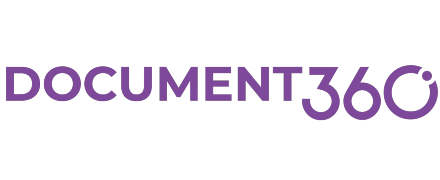In today’s fast-paced digital landscape, knowledge base software has become an essential tool for modern organizations. Whether you are a startup or a global enterprise, access to centralized, easily retrievable information is critical to productivity, customer satisfaction, and long-term growth.
Businesses that rely on scattered files, siloed emails, or outdated manuals often find themselves struggling with inefficiency and inconsistency. That’s where knowledge base software comes in, serving as a single source of truth that keeps your team and customers aligned.
With the best knowledge base software, companies can empower both their employees and customers by offering instant access to the information they need, exactly when they need it. This digital transformation not only enhances collaboration and transparency but also helps streamline workflows, reduce redundancy, and improve decision-making across departments.
What Is Knowledge Base Software?
Knowledge base software is a digital platform designed to collect, organize, store, and share information within an organization or with external audiences such as customers and partners. Its main purpose is to make knowledge easily accessible, whether that’s product documentation, FAQs, troubleshooting guides, internal training material, or company policies.
In simple terms, knowledge base software functions as a structured content repository that ensures everyone can find accurate, up-to-date information without having to ask someone else for help. This makes it a cornerstone of effective knowledge management software strategies across industries.
The Purpose and Value of Knowledge Base Software
- Centralization of Information: It consolidates knowledge that might otherwise be scattered across different tools, emails, or team chats.
- Consistency in Communication: Maintaining verified, standardized information helps prevent errors or misinformation across departments.
- Accessibility and Searchability: Most modern knowledge base software includes advanced search features and tagging systems to make retrieving information effortless.
Difference Between a Knowledge Base and General Documentation
While both serve to store information, there is a key distinction between general documentation and a knowledge base:
- Documentation is typically static and written for internal or technical use, think developer manuals or process PDFs.
- A knowledge base, however, is dynamic, searchable, and interactive. It’s designed for real-time access and usability, allowing teams or customers to find answers on their own.
For instance, a call center knowledge base software allows agents to quickly locate scripts, troubleshooting steps, or policy details during customer interactions. This not only speeds up response times but also ensures accuracy and consistency across every conversation.
Furthermore, companies that use open source knowledge base software or free knowledge base software options often benefit from flexible customization and scalability without high costs, making it accessible even for smaller teams.
Why Every Business Needs Knowledge Base Software
Every modern business, regardless of its size or industry, can gain tremendous value from implementing knowledge base software. In an era where time, accuracy, and customer satisfaction are non-negotiable, relying on shared folders or long email chains is no longer sustainable.
Improving Team Efficiency and Customer Satisfaction
A well-structured knowledge base software acts as the backbone of team productivity. Instead of spending hours searching for answers, employees can instantly access verified information. This helps new hires onboard faster, reduces dependency on senior team members, and keeps everyone aligned with company policies and procedures.
For customer-facing teams, especially support or sales, having the best knowledge base software ensures that agents deliver quick, accurate responses. In fact, companies that integrate call center knowledge base software often see measurable improvements in first-call resolution rates and customer satisfaction scores.
Reducing Repetitive Support Queries
One of the most immediate benefits of knowledge base software is the reduction of repetitive queries. When customers or employees can find answers through self-service portals or FAQs, the number of redundant support tickets drops significantly.
This frees up your support staff to focus on more complex or high-value tasks, improving overall operational efficiency. Businesses using free knowledge base software or best free knowledge base software often report significant ROI simply by lowering the time and cost spent on repetitive communication.
Empowering Self-Service for Customers and Employees
Today’s users, both internal and external, prefer self-service. They want answers instantly, without waiting for an email reply or support ticket. A comprehensive knowledge base software allows customers to troubleshoot issues, learn about new features, or find documentation on their own.
For employees, especially remote or hybrid teams, knowledge management software serves as a 24/7 information hub. It breaks down silos, encourages autonomy, and enables seamless collaboration. Whether it’s an internal wiki or a customer-facing help center, a well-built knowledge base software transforms how people access and share knowledge.
Key Benefits of Using Knowledge Base Software
Adopting knowledge base software is more than a convenience, it is a strategic move that strengthens customer relationships, enhances employee productivity, and improves your overall digital presence.
Whether through call center knowledge base software for faster customer service or knowledge management software for internal collaboration, the benefits are extensive and measurable.
Enhancing Customer Experience
A major reason businesses invest in knowledge base software is to improve their customer experience. When customers encounter a problem or question, they want immediate answers without waiting for an agent or submitting a ticket. That is where self-service portals built with the best knowledge base software make a real difference.
Self-Service Portals and 24/7 Support Access
Modern consumers expect access to information at any time. A well-structured knowledge base software gives your customers exactly that: a 24/7 self-service experience. They can browse FAQs, product tutorials, and troubleshooting guides on their own, reducing frustration and enhancing satisfaction.
This round-the-clock accessibility has proven especially valuable for companies with global audiences or time zone differences. It ensures users can always find what they need without delay.
Relevance to Call Center Knowledge Base Software
For customer support teams, call center knowledge base software is an absolute game-changer. It helps agents quickly locate the right answers, standardize responses, and maintain consistent service quality across all channels. Instead of searching through files or relying on memory, agents can pull verified information instantly during calls or live chats.
Many leading companies report that their knowledge base software directly contributes to higher first-contact resolution rates and shorter average handling times.
Case Examples of Improved Response Time
Consider a SaaS company that reduced its average support response time from 12 hours to just 2 by implementing the best knowledge base software integrated with its help desk system. Or a retail brand that deployed free knowledge base software to empower both agents and customers, achieving a 30% reduction in repetitive support inquiries within three months.
These examples show that knowledge base software is not just a support tool, it is a customer experience enhancer that drives loyalty and trust.
Empowering Teams with Internal Knowledge
An efficient organization thrives on shared information. Knowledge base software ensures that valuable insights, procedures, and lessons are not locked away in emails or forgotten documents.
Centralized Documentation for Onboarding and Training
When new employees join, the onboarding process can feel overwhelming. A centralized knowledge base software serves as an internal guidebook that outlines policies, workflows, and company culture. This reduces training time and ensures that everyone receives consistent, accurate information.
For instance, HR departments often use knowledge management software to maintain employee handbooks, benefits information, and compliance documentation. Similarly, technical teams leverage open source knowledge base software for documenting code libraries and project workflows.
Collaboration and Continuous Learning through Knowledge Management Software
Modern knowledge management software enables teams to co-create and update internal documentation effortlessly. Features like version control, content tagging, and feedback loops foster a culture of continuous learning and improvement.
Instead of knowledge being confined to a few experienced employees, everyone contributes to a growing repository of organizational wisdom. This democratization of knowledge leads to more agile decision-making and innovation across departments.
Boosting SEO and Brand Authority
A well-structured, public knowledge base software can do more than just help customers, it can also serve as a powerful SEO asset for your business.
How Public Knowledge Bases Attract Organic Traffic
When customers search online for troubleshooting tips or feature explanations, your knowledge base software articles can appear in search results. By optimizing your help articles with relevant keywords, businesses can drive organic traffic and increase brand visibility.
For example, if you operate a tech platform and publish step-by-step tutorials using the best knowledge base software, your public knowledge hub becomes a magnet for users searching for those solutions. Over time, this contributes to brand authority and customer trust.
Best Practices for SEO Optimization in a Knowledge Base
To maximize visibility, follow these best practices for optimizing your knowledge base software:
- Use keyword-rich titles and meta descriptions featuring terms like best knowledge base software and free knowledge base software.
- Structure articles with clear headings (H2/H3) to improve readability and indexing.
- Link related content internally to enhance user experience and crawl depth.
- Add schema markup to help search engines understand your content structure.
- Update content regularly to keep it relevant and accurate.
Implementing these SEO techniques not only helps your audience find answers faster but also positions your company as an expert in its field, further strengthening your digital presence.
Core Features of Effective Knowledge Base Software
Not all knowledge base software platforms are created equal. To get the most out of your investment, it is crucial to understand the core features that separate the best knowledge base software from the rest.
User-Friendly Interface and Customization
Intuitive Design for Both Creators and Readers
An effective knowledge base software must be easy to use both for the people who create content and for those who consume it. A clean, intuitive interface encourages authors to update information regularly and helps readers navigate effortlessly.
Search bars, category filters, and clear layouts reduce friction, ensuring users find what they need quickly. For free knowledge base software, this usability often determines whether the system is adopted company-wide or abandoned.
Custom Branding and Structure
The best knowledge base software allows full customization to align with your brand identity. From logos and color schemes to URL structures and templates, customization options enhance professionalism and consistency.
For example, customer-facing portals built with open source knowledge base software can integrate unique layouts, multilingual support, and custom themes to deliver a cohesive experience that matches your brand voice.
Powerful Search and AI Assistance
Advanced Search Features with AI Integration
Search functionality is the backbone of any knowledge base software. The more precise and predictive it is, the faster users can find information. The most advanced platforms now use AI-driven search to understand context, intent, and related queries.
For example, if a user types “reset account password,” AI-enhanced knowledge base software can instantly suggest the most relevant guide, even if the article uses different wording like “recover credentials.”
Predictive Suggestions and Semantic Understanding
AI-powered search tools also provide predictive suggestions, surfacing related articles or FAQs before a user finishes typing. This level of semantic understanding creates a smoother, more efficient experience, especially in call center knowledge base software, where every second counts.
These intelligent systems continuously learn from user behavior, improving accuracy over time and ensuring that both employees and customers always have access to the most relevant content.
Access Control and Permissions
Public vs. Private Access
Security and accessibility are critical considerations for any knowledge base software. Businesses can choose between public knowledge bases for customers or private internal portals for employees.
Public access helps improve SEO and user experience, while private access ensures sensitive company information remains secure. Many organizations use both one for internal documentation and another customer-facing one built with the best knowledge base software.
Role-Based Permissions for Internal Teams
Effective knowledge management software includes role-based access controls that determine who can view, edit, or publish content. This prevents unauthorized changes and ensures accountability across departments.
For example, HR staff may edit employee policy documents, while technical teams manage product guides, all within the same knowledge base software ecosystem.
Integration and Automation Capabilities
CRM, Help Desk, and Chat Integrations
The most powerful knowledge base software integrates seamlessly with tools like CRMs, help desks, and live chat systems. This ensures that customer service representatives have real-time access to information directly within their workflow.
For example, integrating call center knowledge base software with a CRM allows agents to pull customer history and relevant articles in one view, speeding up resolutions and improving satisfaction.
API Access for Automation and Workflow Improvement
Many open source knowledge base software platforms and premium solutions provide API access, enabling automation and advanced customization. APIs can trigger updates, sync data between platforms, and even personalize content based on user profiles.
This level of automation eliminates manual work, enhances productivity, and ensures your knowledge base software remains up to date as your business evolves.
Knowledge Base Software Comparison
With so many tools available, choosing the best knowledge base software can be overwhelming. Every platform promises efficiency, collaboration, and simplicity, but the reality often depends on your specific business needs, technical setup, and budget.
This knowledge base software comparison highlights the leading solutions available today, including both free knowledge base software and open source knowledge base software options.
Whether you run a small startup or manage a large enterprise, this section helps you identify which platform fits your workflow, scalability requirements, and long-term goals.
Methodology for Comparison
To evaluate the top knowledge base software, several key criteria were used to ensure an unbiased and comprehensive comparison:
Criteria for Evaluating Knowledge Base Software
- Usability: How intuitive is the interface for both authors and readers?
- Scalability: Can the software grow with your team and handle expanding content libraries?
- Pricing: Does the platform offer affordable or free knowledge base software plans for startups and small teams?
- Integrations: How well does it connect with CRMs, ticketing systems, and collaboration tools?
- Support & Maintenance: Is support readily available, and how often does the vendor update the product?
These benchmarks help ensure you are not just choosing a tool—but a long-term solution that aligns with your company’s evolving information needs.
Proprietary vs. Free vs. Open Source Knowledge Base Software
Understanding the difference between proprietary, free, and open source knowledge base software is crucial:
- Proprietary software: Offers premium features, customer support, and security but usually comes with recurring fees. Examples include Zendesk Guide and Helpjuice.
- Free knowledge base software: Ideal for small teams needing essential features without the cost. However, customization and scalability can be limited.
Open source knowledge base software: Offers flexibility, transparency, and deep customization for developers. Platforms like BookStack and Docusaurus allow businesses to self-host and modify the codebase.
10 Best Knowledge Base Software Options
When selecting from the many knowledge base software solutions out there, what sets the best apart is how well each one balances usability, scalability, integrations, and value.
Below is a detailed look at top contenders (both proprietary and open source) that are widely considered among the best.
| Tool | Strengths / Unique Features | Considerations / Limitations | Ideal Use Case / Buyer Persona |
|---|---|---|---|
| Slite | Clean, collaborative interface; real-time editing; built for internal wikis and team knowledge | Less feature-rich for heavy external knowledge base needs; limited analytics | Small to medium teams wanting an internal knowledge base and shared workspace |
| Notion | Highly flexible, blocks-based, strong templates & integrations | Not built purely for help-center style public KBs; lacks fine-grained access control for external customers | Teams already using Notion and wanting knowledge base + project tools in one |
| Confluence (Atlassian) | Robust permission controls, rich collaboration, scalable | May feel heavy or overkill for small teams; steeper learning curve | Mid-to-large organizations needing structured internal documentation |
| Zendesk Guide | Deep integration with Zendesk help desk, AI recommendations, public KB + ticketing synergy | More expensive, especially with full Zendesk Suite; external-only orientation | Customer support organizations needing a unified help center + ticketing |
| Document360 | Strong documentation features (versioning, approval workflows), AI enhancements, analytics | Pricing can escalate; may require some setup time | Tech products, SaaS companies, or those needing robust external documentation |
| Helpjuice | Branded external knowledge base, powerful analytics, customization | Costly for smaller teams; limited internal team-wiki features | Businesses wanting a polished, high-performance external KB |
| Guru | “Cards” concept (bite-sized knowledge), browser extension, internal support focus | Less ideal for full public help centers; less structure for large hierarchy | Sales, support teams, internal knowledge sharing |
| KnowledgeOwl | Strong permissions, WYSIWYG + Markdown editing, feedback loops | UI is functional rather than modern; fewer integrations than premium tools | Organizations balancing internal and external knowledge needs |
| BookStack (Open Source) | Self-hosting, full customization, cost-free licensing | Requires technical setup and maintenance; fewer “outs-of-box” integrations | Teams with developer capacity wanting open source knowledge base software |
| Zoho Desk (with KB module) | Integrated support + knowledge base, AI assistant, omnichannel support | KB features are somewhat limited compared to dedicated KB platforms | Businesses already using Zoho suite or needing integrated support + knowledge base |
I’ll now dive deeper into each one, highlighting what makes them stand out in 2025, and how they align with keywords like best knowledge base software, free knowledge base software, call center knowledge base software etc.
Slite

Why it stands out:
Slite combines a clean, modern editor with collaborative features that feel lightweight and approachable. It’s less rigid than a traditional documentation tool but powerful enough to form a meaningful internal knowledge base software.
It supports version history, content linking, templates, and a gentle permission structure.
Pros:
- Very easy for teams to adopt with minimal training overhead
- Real-time editing and commenting for collaborative writing
- Templates make it easy to spin up standard article types
Cons:
- Less ideal for building a public-facing help center
- Limited advanced analytics or AI assistance
- Access control is more basic compared to enterprise tools
Best for: Teams focused primarily on internal knowledge and culture, or small businesses that prioritize simplicity over heavy features.
Notion

Why it stands out:
Notion is a flexible, modular workspace tool, but many teams use it as a knowledge base thanks to its powerful content blocks, relational databases, and embedded rich media. It’s not strictly knowledge base software, but its flexibility makes it a popular choice in this space.
Pros:
- Extremely customizable structure (databases, pages, toggles)
- Embeds, multimedia support make content richer
- Many third-party integrations (Slack, Google Drive, etc.)
Cons:
- Requires discipline in structure; it can get messy in larger setups
- Lacks deep access control for external users or public KB needs
- No built-in ticketing or support integration (you’ll need to bolt it together with other tools)
Best for: Teams already using Notion and looking to extend its use to internal documentation and team knowledge.
Confluence (Atlassian)

Why it stands out:
Confluence is deeply entrenched in enterprise environments, especially those already using other Atlassian tools like Jira. It offers granular permission control, robust structure, analytics, and plugin ecosystems.
Pros:
- Strong version control, permissions, and audit trails
- Deep integration with Jira, Bitbucket, and the Atlassian ecosystem
- Scales well for large organizations with multiple teams
Cons:
- Can feel heavy or overcomplicated for small teams
- Some learning curve for advanced features
- External/public help center features are not as optimized as dedicated KB tools
Best for: Companies that need organized internal knowledge, especially development or engineering teams needing documentation tied to their software projects.
Zendesk Guide

Why it stands out:
Zendesk Guide is often the go-to call center knowledge base software, since it integrates natively with the Zendesk support suite. It augments ticket interactions with relevant articles and helps agents and users find solutions quickly.
Pros:
- Ticket-article linking and AI-suggested content help agents
- Multilingual support, community forums, and public self-serve portal capabilities
- Strong analytics about which articles solve tickets
Cons:
- Cost is significant once you add more advanced features or multiple agents
- Best when paired with Zendesk’s other tools, less ideal as a standalone KB
- Customization flexibility can be limited compared to standalone tools
Best for: Support-rich organizations or enterprises already using Zendesk or preparing to expand customer support.
Document360

Why it stands out:
Document360 is purpose-built for documentation and external knowledge bases, with a strong mix of features that appeal to tech companies versioning, SEO tools, approval workflows, analytics, and AI enhancements.
Pros:
- Designed for external documentation (help centers, dev docs)
- AI and SEO capabilities (auto-suggestions, meta descriptions)
- Strong analytics to highlight content gaps or traffic trends
Cons:
- The learning curve for advanced features
- Pricing can scale quickly with team size
- Less ideal for internal, collaborative team wikis
Best for: SaaS products, API platforms, B2B software companies that require polished product documentation and customer-facing knowledge.
Helpjuice

Why it stands out:
Helpjuice is known for its rich customization, branding, and analytics—especially for building polished external knowledge bases. Organizations aiming to present a refined, branded self-service portal often choose Helpjuice.
Pros:
- White labeling and custom design flexibility
- Strong analytics and search performance
- Support for internal + external knowledge bases
Cons:
- High cost for teams scaling
- Less ideal as a full internal wiki tool
- Might require more setup and design effort
Best for: Companies that view their knowledge base as a key customer-facing asset and want deep analytics and brand alignment.
Guru

Why it stands out:
Guru organizes knowledge into “cards,” which are bite-sized units of verified information that can surface contextually (e.g. via browser extension). Its focus is moreon internal knowledge sharing than on external documentation.
Pros:
- Lightweight, fast access to knowledge right where it’s needed
- Verification workflows help maintain trust in content
- Integrates with Slack, browser, etc.
Cons:
- Not ideal for organizing long-form documentation or complex hierarchies
- Less suitable for public knowledge bases
- Fewer SEO or external-readiness features
Best for: Sales teams, support teams, and internal operations wanting knowledge at a glance and in context.
KnowledgeOwl

Why it stands out:
KnowledgeOwl strikes a balance between external help center features and internal documentation. It offers structured editing, access controls, and feedback mechanisms in one tool.
Pros:
- Mixed WYSIWYG + Markdown editing
- Granular user permissions and feedback tracking
- Usable for internal and external audiences
Cons:
- Design and UI feel more utilitarian than cutting-edge
- Fewer integrations than leading platforms
- Some features (e.g. AI, search) may lag premium tools
Best for: Organizations wanting moderate complexity, both public and private sections, without high cost or heavy customization demands.
BookStack (Open Source)

Why it stands out:
As open source software, BookStack gives you full control. You can self-host, modify, and integrate it into your existing infrastructure. For technical teams, this is an appealing option.
Pros:
- No licensing fees; complete control over data
- Customization possible at code level
- Strong community support
Cons:
- Requires technical resources to install, maintain, and secure
- Lower support and fewer built-in advanced features
- Integrations need manual work
Best for: Developer-heavy teams or organizations operating with in-house infrastructure who want the freedom of open source knowledge base software.
Zoho Desk (with KB module)

Why it stands out:
Zoho Desk includes knowledge base modules as part of an integrated support suite. If you’re already in the Zoho ecosystem, this offers convenience and cohesion.
Pros:
- Unified ticketing + knowledge base + AI assistant
- Cost-effective for small teams
- Good option for omnichannel support and integrated workflows
Cons:
- KB functionality is more basic compared to dedicated solutions
- Less flexibility or branding for the knowledge portal
- Analytics and advanced features are more modest
Best for: Organizations wanting an all-in-one support + knowledge solution, especially those already using Zoho products.
Comparative Insights
- AI & smart recommendations are becoming baseline expectations. Tools like Zendesk Guide, Document360, and Zoho Desk increasingly include AI-driven suggestions and assisted content discovery.
- Scalability and enterprise readiness matter. For large organizations, solutions like Confluence, Zendesk, and Document360 offer structures and flexibility to handle multiple teams, languages, or brands.
- Open source vs. hosted trade-offs. Open source solutions like BookStack allow maximum control but require maintenance. Hosted tools free you from infrastructure work but can lock you into pricing and vendor dependencies.
- Public vs. internal orientation. Some tools are better suited for external, public-facing knowledge bases (Helpjuice, Document360, Zendesk Guide), while others focus on internal knowledge sharing or team wikis (Slite, Notion, Guru).
Total cost of ownership includes not just license fees but training, content migration, integrations, and ongoing maintenance.
Call Center Knowledge Base Software
In the fast-paced world of customer support, call center knowledge base software plays a vital role in ensuring quick, consistent, and accurate responses. When agents handle dozens or even hundreds of customer inquiries daily, they need instant access to reliable information without the delay of searching through emails or outdated manuals.
A well-designed knowledge base software transforms how call centers operate, reducing training time, enhancing performance, and improving the overall customer experience.
Why Call Centers Need Dedicated Knowledge Solutions
A general knowledge base software can centralize company information, but a call center knowledge base software is specifically designed for live, real-time interactions.
Real-Time Support and Reduced Agent Training Time
Agents can search, retrieve, and share verified answers within seconds while speaking to customers. This real-time access reduces the need for extensive onboarding since new agents can rely on the database for accurate scripts, policies, and troubleshooting guides.
For example, customer service leaders often note a 30–50% reduction in new agent ramp-up time after implementing the best knowledge base software tailored for call centers. This not only saves costs but also increases confidence and consistency in customer communication.
AI-Driven Suggestions During Calls
Modern call center knowledge base software integrates artificial intelligence to enhance real-time support. AI can listen to call transcripts, predict the customer’s issue, and instantly display the most relevant articles or scripts to the agent.
This predictive capability, found in platforms like Zendesk Guide, significantly improves resolution times and reduces stress on agents. AI-driven search ensures that even complex customer queries are handled quickly and accurately.
Best Knowledge Base Software for Call Centers
Choosing the best knowledge base software for call centers depends on balancing ease of use, integration capabilities, and the ability to support large agent teams. Below are top-rated options that excel in these areas:
1. Zendesk Guide
One of the most established tools, Zendesk Guide integrates seamlessly with Zendesk Support, offering powerful AI-based suggestions, multilingual support, and analytics. Agents can access relevant articles directly from their dashboard during live calls or chats.
Best for: Medium to large businesses that rely heavily on structured ticket management and automation.
2. Freshdesk
Freshdesk by Freshworks combines a dynamic help desk system with an intuitive knowledge base software. Its features include canned responses, custom scripts, and a one-click search for agents.
Best for: Call centers looking for cost-effective, easy-to-use customer support solutions with integrated knowledge management.
3. Zoho Desk
Zoho Desk offers a flexible call center knowledge base software within its broader customer support ecosystem. With features like contextual article suggestions and AI-powered chatbots, Zoho Desk helps teams improve both self-service and assisted support.
Best for: Small to mid-sized businesses using the Zoho ecosystem that need an affordable, integrated support platform.
Measuring Call Center Efficiency with Knowledge Tools
To assess the impact of knowledge base software on call center performance, it’s important to track specific metrics that reflect both speed and quality.
Key Performance Metrics:
- Average Handling Time (AHT): Measures the time agents take to resolve issues; a well-structured knowledge base software reduces AHT dramatically.
- Resolution Rate: Tracks how often customer issues are solved on first contact. Effective call center knowledge base software increases this metric by giving agents instant access to correct answers.
- Customer Satisfaction (CSAT): Surveys and feedback forms help gauge the effectiveness of knowledge tools in improving the customer experience.
Companies using AI-driven systems like Zendesk Guide or Freshdesk often see notable improvements in AHT and CSAT within the first few months.
Free and Open Source Knowledge Base Software Options
Not every business can afford enterprise solutions from day one. Fortunately, the market for free knowledge base software and open source knowledge base software has expanded significantly in recent years. These tools empower startups and small businesses to build efficient documentation systems without the burden of subscription costs.
Advantages of Free Tools
Cost-Effective Solutions for Startups
For early-stage businesses, free knowledge base software provides a solid foundation for customer support and internal collaboration without high expenses. Many of these platforms include essential features like article creation, search functionality, and access control, all without upfront investment.
Startups can also experiment with various systems to determine which best fits their workflow before scaling up to premium versions of the best knowledge base software.
Community-Driven Innovation
Open source knowledge base software thrives on community contributions. Developers around the world continuously enhance these platforms, ensuring regular updates, bug fixes, and feature improvements.
Popular open source options like BookStack, Docusaurus, and phpMyFAQ have thriving communities that provide support and customization plugins. Resources such as GitHub host extensive repositories where users can collaborate, report issues, and build upon existing frameworks.
Limitations to Be Aware Of
While free knowledge base software and open source knowledge base software offer numerous advantages, they also come with limitations that businesses should consider before deployment:
- Support Gaps: Free tools often rely on community help rather than dedicated support teams.
- Customization Challenges: Some advanced features, like AI search or analytics, require manual configuration or technical expertise.
- Hosting and Maintenance Costs: Open source options need to be self-hosted, which introduces server costs, updates, and security management.
Despite these trade-offs, many organizations successfully deploy free knowledge base software to manage internal and customer knowledge efficiently, especially when technical support is readily available in-house.
Comparison: Best Free Knowledge Base Software vs. Paid Alternatives
The table below highlights key differences between free knowledge base software, open source knowledge base software, and premium paid platforms:
| Feature / Factor | Free Knowledge Base Software | Open Source Knowledge Base Software | Paid / Proprietary Knowledge Base Software |
|---|---|---|---|
| Cost | $0 – limited plans | Free license, but hosting costs | Monthly or annual subscription fees |
| Hosting | Cloud-hosted by provider | Self-hosted (manual setup) | Cloud or on-premises |
| Customization | Basic branding | Full code-level customization | High flexibility via integrations |
| Support | Community-based | Community-driven | Dedicated technical support |
| AI Features | Limited or none | Optional plugins (manual setup) | Built-in AI search & recommendations |
| Scalability | Ideal for small teams | Scales with technical resources | Scales automatically with business growth |
| Integration Options | Basic | Manual API connections | Deep integration with CRMs, help desks, and chat tools |
This comparison shows that while free knowledge base software is perfect for startups or small operations, scaling companies often transition to the best knowledge base software or enterprise-level knowledge management software for advanced analytics, automation, and support.
Future of Knowledge Base Software
The landscape of knowledge base software is evolving rapidly, driven by artificial intelligence, automation, and personalization. Businesses are no longer satisfied with static FAQs or static document repositories, they expect dynamic, intelligent systems that can learn, adapt, and deliver context-specific knowledge in real time.
In the coming years, the best knowledge base software will combine automation with human insight, creating a seamless connection between customer needs and company knowledge.
AI and Automation in Knowledge Management
The integration of AI has already reshaped how organizations approach knowledge management software. Modern systems can analyze data patterns, automate repetitive documentation tasks, and even generate articles from conversation logs.
AI-Generated Articles and Predictive Suggestions
AI-driven knowledge base software now assists in content creation by auto-generating drafts, summarizing technical guides, or recommending updates based on frequently asked questions. Predictive suggestions ensure that users find relevant answers before even finishing their search queries.
For instance, tools like Document360 and Zendesk Guide use natural language processing (NLP) to enhance search accuracy and recommend articles in real time.
Chatbots Integrated with Knowledge Bases
Chatbots have become the bridge between knowledge management software and customer engagement. By integrating with knowledge base software, chatbots can instantly access structured information to answer user queries 24/7.
This automation not only enhances customer satisfaction but also frees up human agents for complex tasks. According to Gartner’s AI in Service Report, over 70% of customer interactions will involve AI-powered knowledge systems by 2028, making automation a cornerstone of modern customer support infrastructure.
The Rise of Personalized Knowledge Experiences
Beyond automation, personalization represents the next frontier of knowledge base software. Users increasingly expect tailored, context-aware experiences instead of generic information dumps.
Context-Aware Responses and Adaptive Learning
Future knowledge management software will adapt to user profiles, browsing history, and behavioral data to deliver more relevant results. For example, an enterprise sales representative accessing the internal knowledge base software may see content tailored to product pricing and negotiation strategies, while a developer might receive code snippets and API documentation first.
Adaptive learning systems also refine search results over time, ensuring accuracy improves with every user interaction. The best knowledge base software will combine AI, user analytics, and automation to anticipate needs and continually optimize information delivery.
FAQs About Knowledge Base Software
What is the best knowledge base software for small businesses?
For small teams, Notion, Guru, and Zoho Desk are popular because they combine simplicity with affordability. Startups can also explore best free knowledge base software options like BookStack or Slite to minimize costs.
Is there any free knowledge base software worth using?
Absolutely. BookStack, Docusaurus, and phpMyFAQ are among the best free knowledge base software and open source knowledge base software options for startups and developers. They provide strong functionality without subscription fees.
Can open source knowledge base software handle enterprise needs?
Yes, especially when paired with in-house technical expertise. Open source knowledge base software like BookStack and Docusaurus offer high flexibility, security, and scalability, making them suitable for enterprise-level documentation and internal collaboration.
For a more comprehensive list, you can refer to Capterra’s Knowledge Base Software Guide, which compares leading platforms across industries and use cases.
Conclusion
A powerful knowledge base software is no longer optional, it is a strategic necessity. Whether your goal is to streamline internal collaboration, reduce call center workloads, or improve customer satisfaction, the right solution provides measurable business impact.
Summary of Benefits and Best Practices
- Efficiency: Centralized access to knowledge saves time and reduces redundancy.
- Scalability: From startups using free knowledge base software to enterprises deploying open source knowledge base software, scalable solutions ensure growth readiness.
- Customer Empowerment: Self-service portals enhance satisfaction while reducing support costs.
- Continuous Improvement: Analytics and AI-driven insights help maintain quality, relevance, and engagement.
Why Choosing the Best Knowledge Base Software Matters
With so many options available, from call center knowledge base software to open source knowledge base software, the key lies in selecting a system that aligns with your structure, audience, and long-term vision.
Businesses that invest in adaptable, AI-enhanced tools are better positioned to thrive in a knowledge-driven economy.
The future belongs to organizations that treat information as a strategic asset. Explore top-rated platforms on reputable review sites like G2’s Knowledge Base Software Directory, test free trials, and start building a smarter, more connected knowledge ecosystem today.



Add a Comment